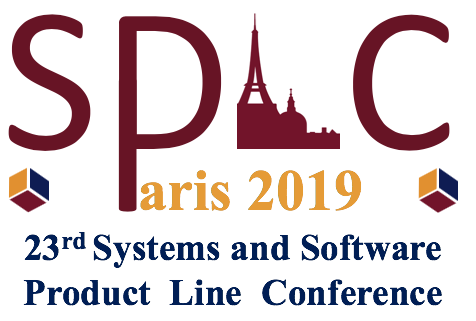Call for Paper: Empirical Software Engineering
Special Issue: Configurable Systems
http://www.springer.com/computer/swe/journal/10664
Editors of the Special Issue
Laurence Duchien*, University of Lille, France
Thomas Thüm, TU Braunschweig, Germany
Paul Grünbacher, Johannes Kepler University Linz, Austria
*Contact person
This special issue in the Empirical Software Engineering journal is intended to provide the systems and software product lines community with a valuable collection of current, high-quality research articles that explore configurable systems with empirical studies.
The special issue will pay particular attention to research and industrial works and their experimentations on configuration steps in the life cycle of system and software product lines. A configurable system is an artifact composed from instances of a set of predefined component types that can be composed and parameterized. The configuration step requires knowledge representation formalisms to capture variety and complexity of configurable products, but also acquisition methods and efficient reasoning algorithms for supporting solution search, to represent, and integrate user settings, personalization, and optimization. The configuration ends with the deployment and launches execution steps. This configuration can also change over time, because of a change of context. This is called reconfiguration.
Submission Topics
The following list of topics aims to summarize those areas in more detail, whereas we also invite submissions to related topics.
- Configuration problems and models
- Approaches for building and maintaining configuration models
- Configuration management and automated deployment
- Knowledge-based and rule-based configuration
- (Self-)adaptive systems, reconfigurable systems, and dynamic software product lines
- Testing of configurable systems (e.g., product sampling, test-case selection, and prioritization, model-based testing, coverage, mutations, debugging, automatic repair, A/B testing)
- Recommendation systems and artificial intelligence for configurators and feature models (e.g., SAT solvers, BDD, CSP solvers, SMT solvers, answer set programming, explanations)
- Configuration tools for new domains
- Configurability for cyber-physical systems and applications to big data and cloud
- Empirical evaluations of all topics above (tools, user studies, case studies, controlled experiments, surveys, rigorous measurements)
Submissions
Empirical Software Engineering (http://link.springer.com/journal/10664) provides a forum for applied software engineering research with a strong empirical component and a venue for publishing empirical results relevant to both researchers and practitioners. Submitted papers must have a strong empirical basis/component to be eligible for this special issue.
In addition to the open call for papers, all authors of SPLC with a submission to the Systems and Software Product Lines Conference (SPLC) will be incited to submit extended versions of their work on configurable systems. To comply with the goals of a journal publication, we are asking to revise and substantially extend original SPLC papers. Some possible extensions can be adding additional practical applications determined through case studies or experiments, an additional empirical validation, systematic comparisons with other approaches, or a sound theoretical foundation. Revised papers should explicitly explain how they extend the original SPLC papers.
The submissions will all be reviewed using the Empirical Software Engineering Journal standards. The co-editors will not be permitted to submit manuscripts for consideration in the special issue.
Papers will undergo a rigorous reviewing process which for extended papers may include some of the reviewers of the SPLC 2019 paper as well as some new reviewers.
Submission Instructions
Papers should be submitted through the Empirical Software Engineering website
(http://www.editorialmanager.com/emse/). Please use the submission type “SI: SPLC”
For formatting guidelines as well as submission instructions, visit
http://www.springer.com/computer/swe/journal/10664?detailsPage=pltci_2530593
